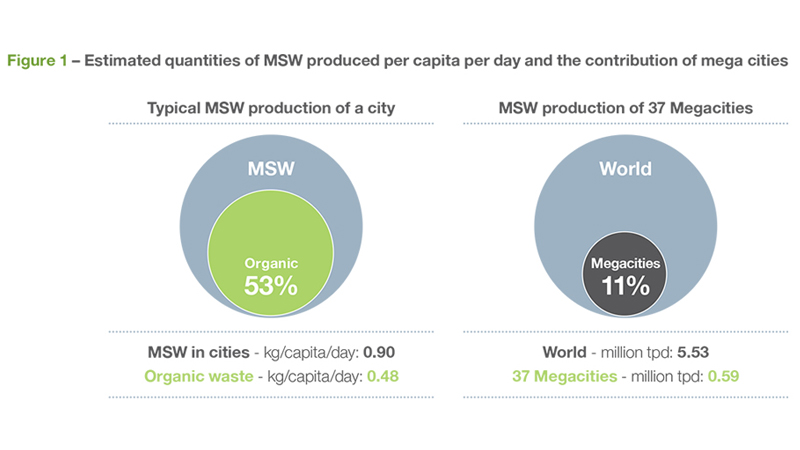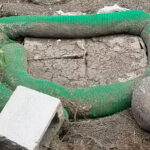The report summarizes global estimates of the amount of organic solid wastes produced — principally from municipal origin — and separately collected (source segregated) and treated through a composting and/or anaerobic digestion process. “It does not, as far as reasonably practicable, include non-segregated wastes treated in mixed waste plants, such as at mechanical biological treatment (MBT) facilities,” explain the authors. Other sources of organic waste, such as agricultural and industrial waste, have been differentiated, as far as possible.
The study excluded sewage sludges and crops grown solely as energy sources and treated in anaerobic digesters. The information summarized in this report was extracted from published secondary data sources, and country specific data provided by WGBTW members. The reference baseline years spanned 2014-2016; the most up-to-date figures available were used, and depended upon the geographic area and/or countries investigated.
The outcomes and available data show that currently 2.6 million metric tons/day (tpd) of organic waste is generated as MSW. The report attributes this to increasing urbanization and improving living conditions; the amount is expected to reach 4.5 million tpd by 2050. Organic waste is on average 53% of total MSW generated, an important data point considering that 37 of the world’s megacities currently generate 115 million metric tons/annum of organic waste (an amount comparable to the organics fraction generated across the European Union).
 The number of composting and biogas facilities treating mainly separately collected organic waste from urban dwellings is estimated to be at least 11,650 plants, bearing in mind that there is a lack of organized data from many countries in Africa, Asia and South America; these numbers do not include the facilities dedicated to treat organic waste/energy crops from agricultural origin. The WGBTW investigation “concludes that where MSW management strategies aim to divert organic waste from disposal towards recycling, there is a need for a density of composting and AD facilities that range from one plant per 200,000 inhabitants up to one each per 22,000 inhabitants in areas with complex logistics.”
The number of composting and biogas facilities treating mainly separately collected organic waste from urban dwellings is estimated to be at least 11,650 plants, bearing in mind that there is a lack of organized data from many countries in Africa, Asia and South America; these numbers do not include the facilities dedicated to treat organic waste/energy crops from agricultural origin. The WGBTW investigation “concludes that where MSW management strategies aim to divert organic waste from disposal towards recycling, there is a need for a density of composting and AD facilities that range from one plant per 200,000 inhabitants up to one each per 22,000 inhabitants in areas with complex logistics.”
ISWA also released “Benefits Of Compost And Anaerobic Digestate When Applied To Soil” in March. BioCycle will summarize findings in that report in the next edition of BioCycle CONNECT on April 8.













